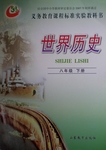题目内容
The time and effort he has devoted during the past few years________ trees in that remote area is now considered to be of great value.
A. to plant B. to planting C. plant D. planting
练习册系列答案
 探究与巩固河南科学技术出版社系列答案
探究与巩固河南科学技术出版社系列答案
相关题目
题目内容
The time and effort he has devoted during the past few years________ trees in that remote area is now considered to be of great value.
A. to plant B. to planting C. plant D. planting
 探究与巩固河南科学技术出版社系列答案
探究与巩固河南科学技术出版社系列答案